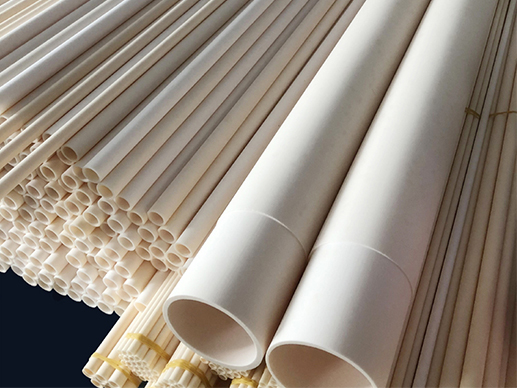Alumina Tubes in the Oil and Gas Industry: Withstanding Harsh Conditions

The oil and gas industry is synonymous with demanding operational environments, where materials must endure extreme temperatures, corrosive substances, and high pressures. Among the materials that have risen to meet these challenges, alumina ceramic tubes stand out for their remarkable durability and resilience. These tubes, crafted from high-purity aluminum oxide (Al2O3), are proving indispensable in various applications within the oil and gas sector, from drilling operations to refining processes.
Exceptional Thermal Stability
One of the primary advantages of alumina tubes is their exceptional thermal stability. The oil and gas industry often involves processes that require materials to withstand temperatures exceeding 1000°C. Alumina ceramic tubes maintain their structural integrity and performance at such high temperatures, making them ideal for use in high-temperature furnaces, thermocouples, and other thermal processing equipment. Their ability to resist thermal shock—a sudden change in temperature—ensures that they do not crack or degrade when subjected to rapid heating and cooling cycles.
Superior Corrosion Resistance
Corrosion is a significant concern in the oil and gas industry due to the presence of aggressive chemicals, acids, and gases. Alumina ceramic tubes exhibit superior corrosion resistance compared to metals and other materials. This resistance extends to both acidic and basic environments, making alumina tubes suitable for use in a variety of chemical processing applications. In drilling operations, where equipment is exposed to harsh drilling fluids and saltwater, alumina tubes offer long-term reliability and reduced maintenance costs.
High Mechanical Strength and Hardness
The mechanical strength and hardness of alumina ceramic tubes are critical for their performance in the oil and gas industry. These tubes can withstand high pressures and mechanical stresses without deforming or breaking. This property is particularly important in downhole drilling tools and equipment, where tubes are subjected to extreme mechanical forces. The high hardness of alumina also makes it resistant to abrasion, further extending its lifespan in abrasive environments.
Electrical Insulation Properties
Alumina ceramic tubes are excellent electrical insulators, a property that is highly valued in the oil and gas industry. Electrical insulation is crucial for safety and performance in various applications, including downhole logging tools, sensor housings, and electrical connectors. Alumina tubes prevent electrical leakage and ensure the reliable operation of electronic components in harsh environments.
Advancements and Future Prospects
The development of advanced manufacturing techniques and material formulations has further enhanced the properties of alumina ceramic tubes. Innovations such as doping with rare earth elements and advanced sintering processes have improved the mechanical strength, thermal stability, and corrosion resistance of alumina tubes. These advancements are driving the adoption of alumina tubes in more challenging and diverse applications within the oil and gas industry.
Looking forward, the role of alumina ceramic tubes in the oil and gas industry is expected to expand. As the industry continues to push the boundaries of exploration and production in harsher environments, the demand for materials that can withstand these conditions will grow. Alumina ceramic tubes, with their unique combination of properties, are well-positioned to meet these challenges and contribute to the industry's ongoing advancements.
Alumina ceramic tubes are proving to be invaluable in the oil and gas industry, where their ability to withstand harsh conditions, high temperatures, and corrosive environments sets them apart from other materials. Their thermal stability, corrosion resistance, mechanical strength, and electrical insulation properties make them essential for a wide range of applications. As the industry continues to evolve and face new challenges, the use of alumina tubes is likely to increase, driving innovation and improving operational efficiency and safety.

